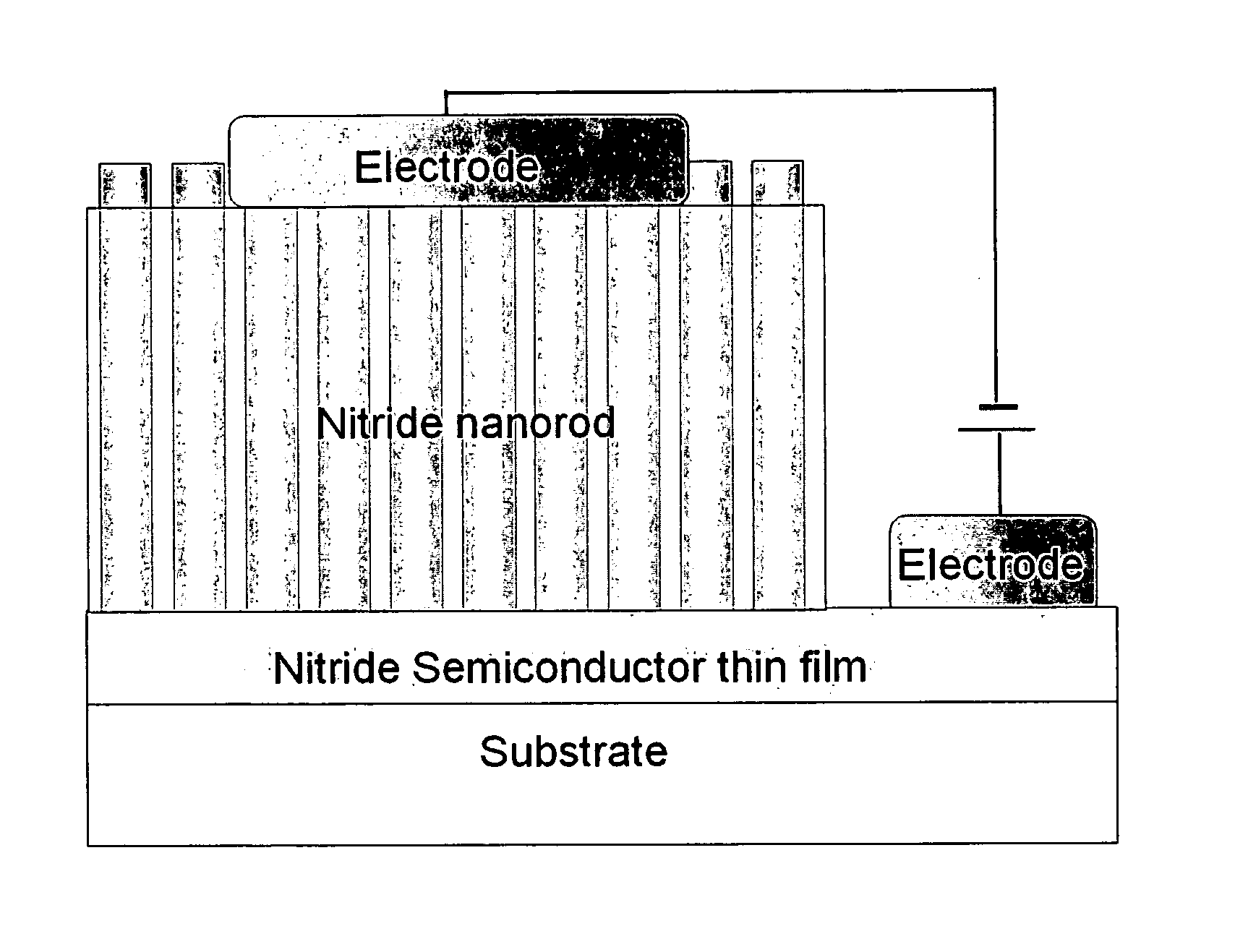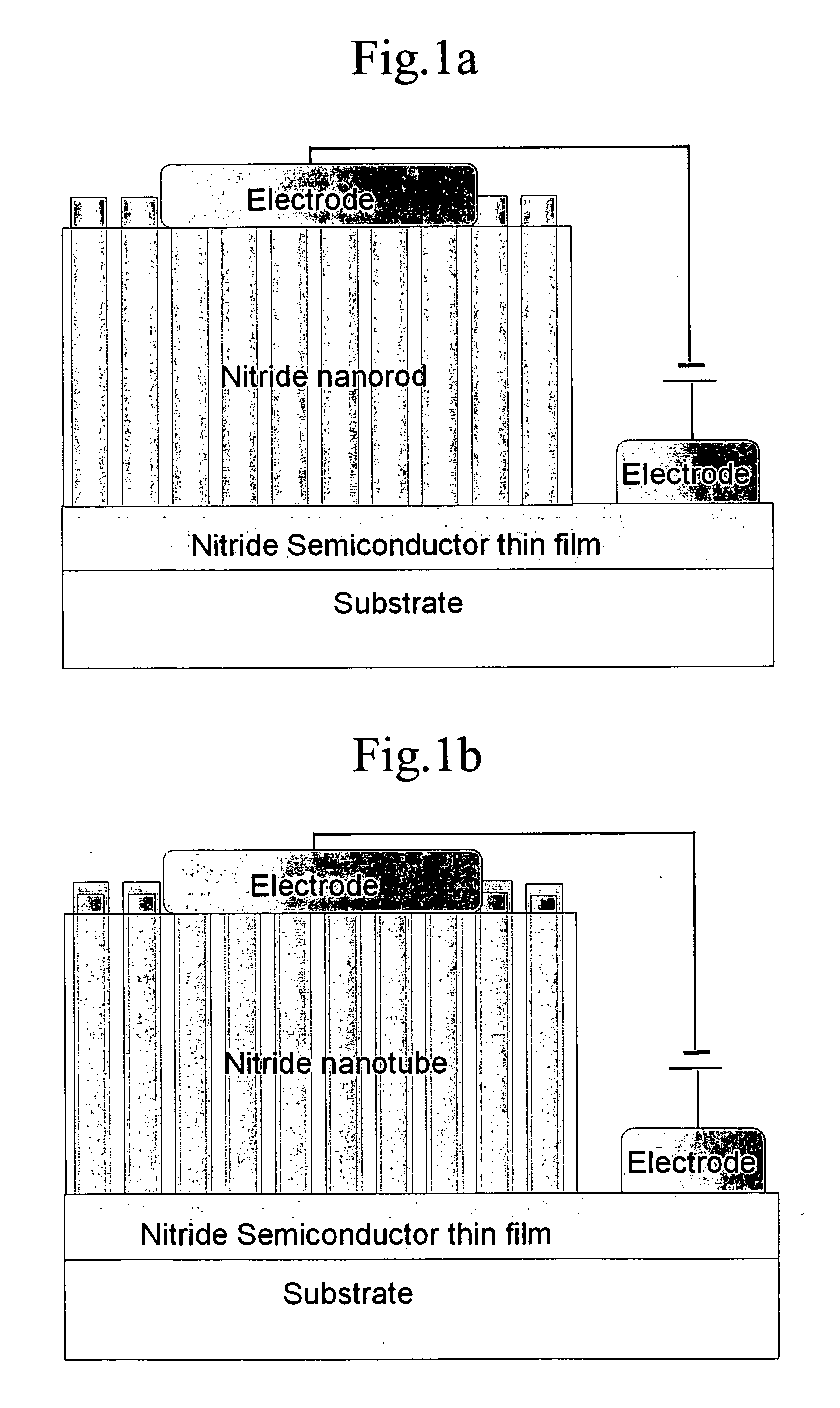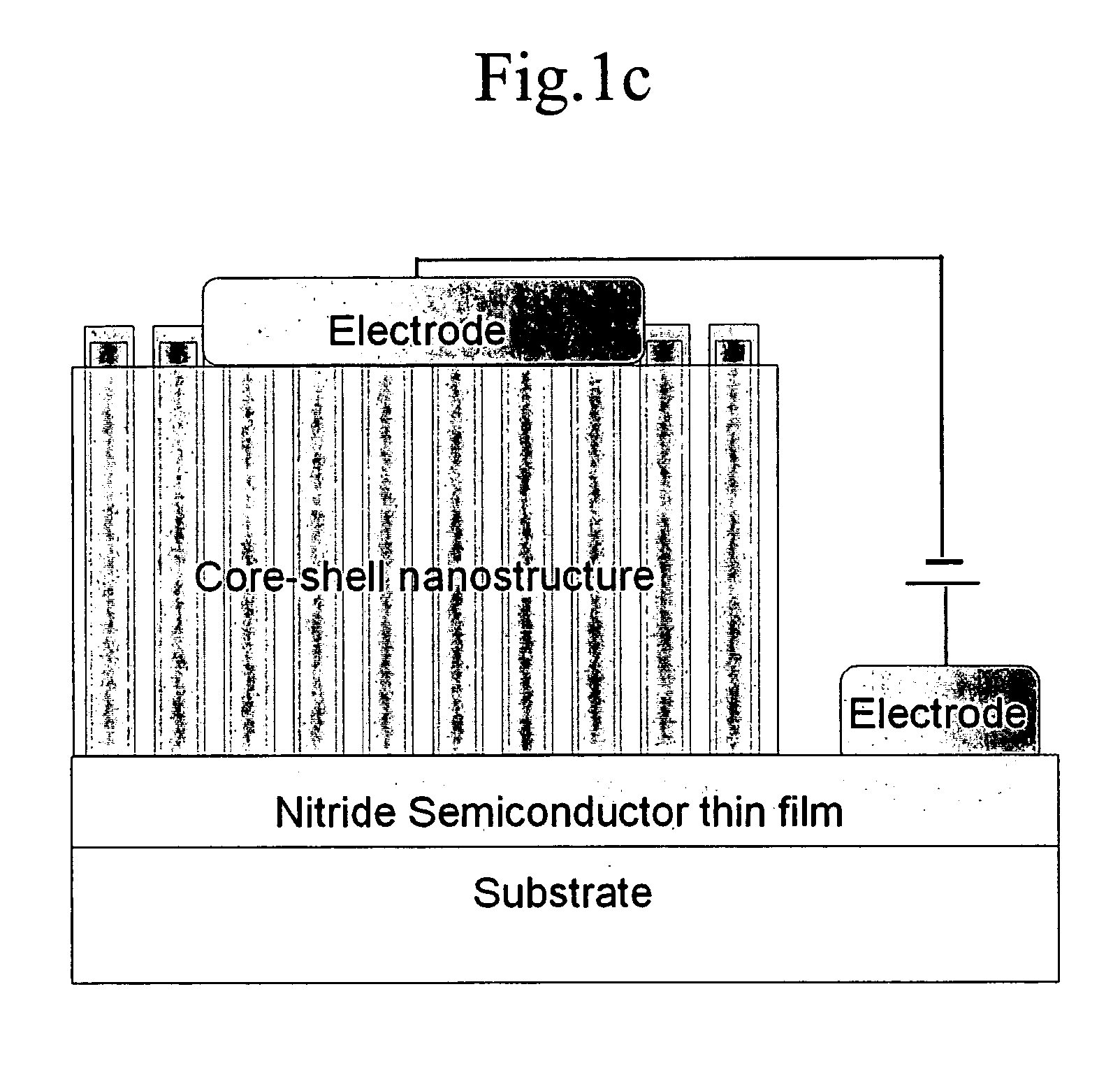Heterojunction structure of nitride semiconductor and nano-device or an array thereof comprising same
a technology of nitride semiconductor and nano-device, which is applied in the direction of semiconductor devices, electrical devices, nanotechnology, etc., can solve the problems of high manufacturing cost and relatively low luminescence efficiency, and achieve low cost, high light-emission properties, and facilitate electron tunneling
- Summary
- Abstract
- Description
- Claims
- Application Information
AI Technical Summary
Benefits of technology
Problems solved by technology
Method used
Image
Examples
example 1
The Growth of Core-shell Nanostructures on a Nitride Semiconductor Thin Film
[0027] An Mg-doped GaN thin film was deposited on an Al2O3 substrate using a conventional MOCVD technique and annealed, to obtain a p-type GaN thin film having a thickness of 2 μm. The metal organic precursors used were trimethylgallium (TMGa) and bis(cyclopentadienyl) magnesium ((C5H5)2Mg); and the nitrogen precursor, NH3.
[0028] Then, n-type ZnO nanorods were vertically grown on the p-type GaN thin film thus obtained, by an MOCVD technique using diethylzinc (Zn(C2H5)2) and O2 with an argon (Ar) carrier gas. The reactor pressure and temperature were maintained in the ranges of 0.1 to 1,000 torr and 200 to 1,000° C., respectively, during one hour nanorod growth time.
[0029] After the completion of the growth of the n-ZnO nanorods on the p-GaN thin film, n-GaN was coated on the surface of the n-ZnO nanorods by injecting gaseous TMGa and NH3 into the reactor and reacting the vapors for 1 to 30 minutes, to obt...
example 2
Fabrication of a Light Emitting Device
[0033] Light emitting diodes were fabricated using the heterojunction structures prepared in Example 1 as follows.
[0034] First, the free space around the nanostructures, GaN / ZnO nanorods or GaN nanotubes, grown on a GaN thin film, was filled up by depositing an insulating material thereon, and then, the tip portion of the nanostructures was exposed by etching using a plasma. Subsequently, a Ti (10 nm) / Au (50 nm) top ohmic electrode was formed at the tip portion of the etched n-type nanostructures; and a Pt (10 nm) / Au (50 nm) bottom electrode, on the p-type GaN thin film, by a thermal or electron beam evaporation technique. The applied accelerating voltage and emission current were in the ranges of 4 to 20 kV and 40 to 400 mA, respectively, during the electrodes deposition, while keeping the reactor pressure at around 10−5 mmHg, and the substrate temperature at room temperature.
[0035] The cross-sectional morphology of the top electrode-formed ...
PUM
 Login to View More
Login to View More Abstract
Description
Claims
Application Information
 Login to View More
Login to View More - R&D
- Intellectual Property
- Life Sciences
- Materials
- Tech Scout
- Unparalleled Data Quality
- Higher Quality Content
- 60% Fewer Hallucinations
Browse by: Latest US Patents, China's latest patents, Technical Efficacy Thesaurus, Application Domain, Technology Topic, Popular Technical Reports.
© 2025 PatSnap. All rights reserved.Legal|Privacy policy|Modern Slavery Act Transparency Statement|Sitemap|About US| Contact US: help@patsnap.com



